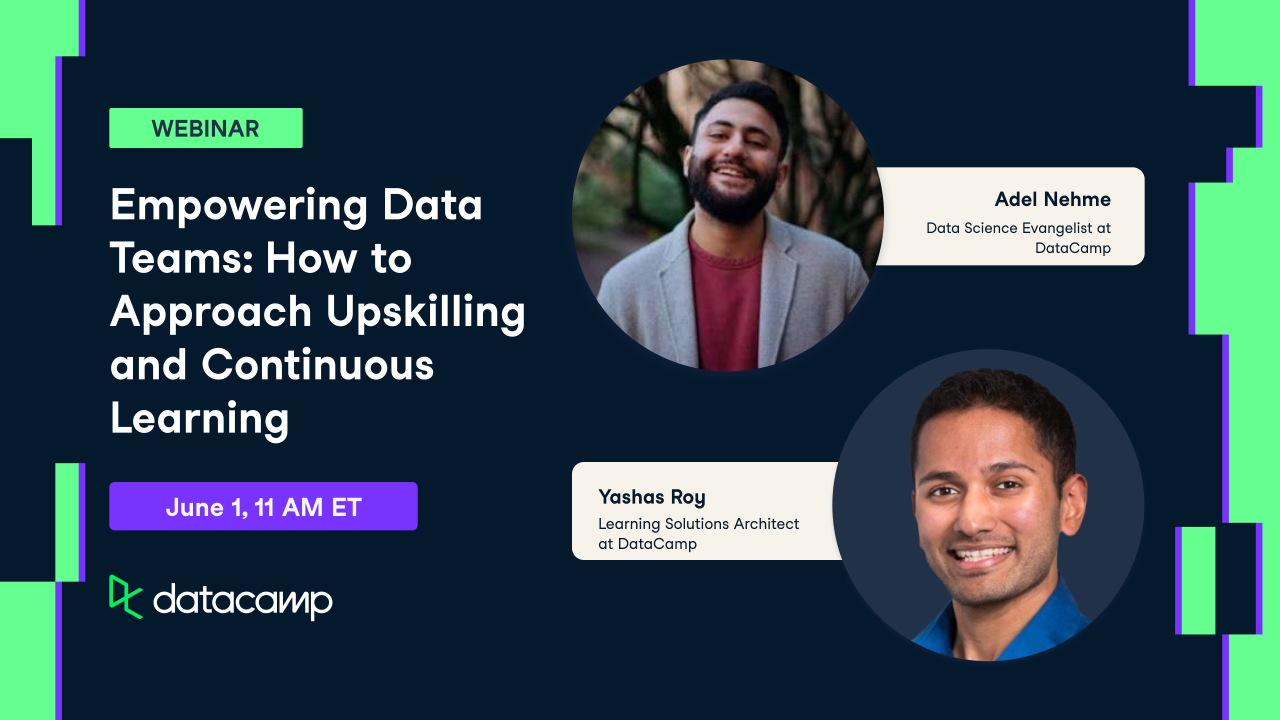Saltar al contenido principalMás información





Altavoces


Yashas Roy
Senior Learning Solutions Architect at DataCamp
¿Entrenar a 2 o más personas?
Obtenga acceso de su equipo a la biblioteca completa de DataCamp, con informes centralizados, tareas, proyectos y másRelacionado
webinar
Building Sustainable Learning Cultures: Strategies for Maximizing Data Upskilling Programs
In this webinar, we will discuss practical approaches for anyone engaged in data upskilling to sustain learning engagement within their organizations.webinar
How Specsavers Upskilled Their Data Teams
In this session, you'll discover how they approached the task of upskilling at scale and how their business has benefitted from the program.webinar
Building an Internal Data Skills Academy
This webinar will cover the key steps for building an internal data academy, including defining learning paths, securing executive support, defining learning personas, scaling learning communities, and much more.webinar
Building an Internal Data Skills Academy
This webinar will cover the key steps for building an internal data academy, including defining learning paths, securing executive support, defining learning personas, scaling learning communities, and much more.webinar
DataCamp in Action — Data Upskilling for Your Organization
Learn how 2,500+ Businesses are using DataCamp to close their team’s skill gapswebinar
DataCamp in Action — Data Upskilling for Your Organization
Learn how 2,500+ Businesses are using DataCamp to close their team’s skill gapsJoin 5000+ companies and 80% of the Fortune 1000 who use DataCamp to upskill their teams.
Loved by thousands of companies
